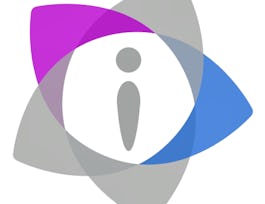In this course, you will learn some medical interventions and skills to keep newborns healthy in the days and weeks after they have been born. We’ll tell you about medicines like Vitamin K and erythromycin and how they can prevent serious illnesses. We’ll also introduce screening tests like hearing screening and newborn blood screening that help to make sure that babies are set up for success right from the start. But we will start off by talking about jaundice, looking at the simple ways to identify and treat this common presentation and prevent any harm to babies.



Preventative Healthcare for the Newborn Baby
This course is part of Newborn Baby Care Specialization



Instructors: Daniel Nicklas
Sponsored by MAHE Manipal
21,064 already enrolled
(604 reviews)
Skills you'll gain
Details to know

Add to your LinkedIn profile
5 assignments
See how employees at top companies are mastering in-demand skills

Build your subject-matter expertise
- Learn new concepts from industry experts
- Gain a foundational understanding of a subject or tool
- Develop job-relevant skills with hands-on projects
- Earn a shareable career certificate


Earn a career certificate
Add this credential to your LinkedIn profile, resume, or CV
Share it on social media and in your performance review

There are 5 modules in this course
Let’s start off talking about a common problem that can be easily identified and treated in newborns. And that is hyperbilirubinemia, which we see as jaundice, or yellow skin, in newborn babies. In this module, we’ll teach you how jaundice occurs and the skills needed to identify hyperbilirubinemia. We’ll finish by telling you the steps to take to lessen the chances of permanent brain damage caused by hyperbilirubinemia, which is called kernicterus.
What's included
8 videos6 readings1 assignment
This module introduces you to the world of hearing and hearing loss, particularly in children. You will learn how hearing loss is classified, causes of hearing loss, implications of hearing loss, and why it is important to treat childhood hearing loss as soon as possible. We will explore the systems in place for identifying childhood hearing loss as early as possible, as well as the treatments available once it is detected.
What's included
6 videos4 readings1 assignment
Everyone enjoys caring for newborns; they are adorable. There is a little more to newborn care than cuteness, though. Our job as clinicians caring for the newly born is to examine them carefully for illnesses that are not readily apparent. One important way in which we do this is with newborn screening tests. In this module, you will learn about the blood spot test. We will go over general concepts and give examples of each of the various types of diseases that it can detect.
What's included
5 videos2 readings1 assignment
Congenital heart diseases are some of them most common birth defects. They range from minor to life-threatening. The most concerning are the group known as “Critical Congenital Heart Diseases” because they require surgery by one month of age in order to avoid death. Pulse oximetry is a simple test that can be used to screen newborns for these serious heart defects, enabling us to identify them in the first days of life. In this module, you will learn how to perform this potentially life-saving screening test.
What's included
3 videos1 reading1 assignment
In this module, we will cover the role of vitamin K in blood clotting, sources of vitamin K, and the reasons why newborns lack vitamin K at birth. This will help us to achieve the broader understanding of why it is important to administer, or give, the vitamin K injection to newborns shortly after birth! Extending the understanding of the importance of vitamin K by identifying the sources of this vitamin in our diet and the reasons why newborns lack this vitamin, we will then discuss vitamin K deficiency bleeding in newborns and the vitamin K injection. We will then learn about the hepatitis B virus and discuss why it is important to vaccinate newborns shortly after birth! This lesson will discuss eye infections in newborns, and the reasons for application of an antibiotic ointment called erythromycin to a newborn’s eyes after birth.
What's included
4 videos7 readings1 assignment
Instructors


Offered by
Why people choose Coursera for their career




Learner reviews
604 reviews
- 5 stars
84.95%
- 4 stars
13.22%
- 3 stars
1.48%
- 2 stars
0%
- 1 star
0.33%
Showing 3 of 604
Reviewed on Jun 9, 2020
This was an excellent course bit I would like if u can do a course about deep pathophysiology
Reviewed on Sep 11, 2020
excellent courses for the beginners who wish to learn newborn baby care. thank you colarado team for the wonderful efforts
Reviewed on Jun 5, 2020
Learnt a lot, four stars only for the mistakes in the answers of fourth week in-video questions - which lead to confusion on my part
Recommended if you're interested in Health

Northeastern University

University of Colorado System

University of Houston

Johns Hopkins University

Open new doors with Coursera Plus
Unlimited access to 10,000+ world-class courses, hands-on projects, and job-ready certificate programs - all included in your subscription
Advance your career with an online degree
Earn a degree from world-class universities - 100% online
Join over 3,400 global companies that choose Coursera for Business
Upskill your employees to excel in the digital economy


